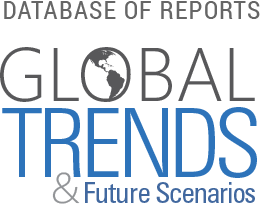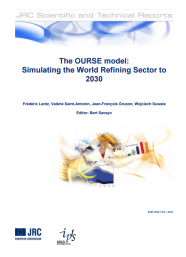
The OURSE Model: Simulating the World Refining Sector to 2030

Executive Summary (excerpt)
The World oil refining industry faces to several challenges such as the increasing oil derivatives demand in the transport sector, the improvement of the specifications of these products, the crude oil availability and the limitation of carbon emissions. An aggregated refining model linked to the POLES energy model has been developed to study these questions.
The OURSE (Oil is Used in Refineries to Supply Energy) model is a world-wide aggregated refining model which is designed to simulate the world oil product supply for the POLES (Prospective Outlook for the Long-term Energy System) model. OURSE is able to simulate the impact on the world refining industry of changes in the crude oil supply (in costs and qualities) as well as in the oil product demand (in terms of level, structure and specifications).
OURSE also enables to assess the consequences of a carbon emission regulation (caps and taxes) as the adoption of various kinds of alternative fuel policies. More precisely, these impacts are evaluated as regards the world refining structure (investments), but also its balance (production and trade of petroleum products), its pollutant emissions (CO2 and SO2) and its costs (of production, investments,
etc.).
The Joint Research Centre – Institute for Prospective Technological Studies (IPTS) of the European Commission maintains the intellectual property rights of this report.
- Issues:
- Natural Resources, Technological innovation
- Region:
- Global
- Year Published:
- 2012
- Authors:
- Frédéric Lantz, Valérie Saint-Antonin, Jean-François Gruson, Wojciech Suwala, Bert Saveyn
- Institutions:
- Institute for Prospective Technological Studies (IPTS), European Union (EU), Joint Research Centre (JRC), European Commission

